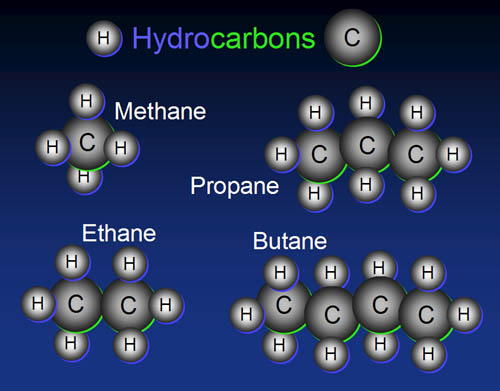While propane and butane are both hydrocarbons used as fuels, are propane and butane the same thing? The answer is no. Although often used for similar purposes, they differ significantly in their chemical structure and properties. Propane is typically delivered in large tanks for residential and commercial use, or sold in cylinders for portable applications. It is a versatile fuel used for heating homes and water, cooking, powering appliances and vehicles, and even as an alternative energy source. Butane, on the other hand, is primarily sold in smaller bottles, making it convenient for portable applications. It’s commonly used as a refrigerant, propellant, or fuel for portable cooking stoves.
Are Propane and Butane Interchangeable?
While propane and butane are often used for similar purposes, they are not interchangeable. This is due to their distinct chemical structures and resulting properties. Propane and butane are both hydrocarbons, meaning they are composed of hydrogen and carbon atoms. However, their molecular structures differ, leading to significant variations in their boiling points, vapor pressures, and energy densities. The differing properties of propane and butane make them suitable for different applications and environments.
Propane vs. Butane: Similarities and Differences
While propane and butane are both hydrocarbons, meaning they consist of hydrogen and carbon atoms, they have unique chemical structures and characteristics. This leads to distinct differences in their applications, storage, and performance.
Here are some key similarities and differences between propane and butane:
Similarities:
- Both are flammable gases: Propane and butane are highly flammable gases commonly used as fuels.
- Both produce energy: When combusted, both propane and butane release significant energy, making them suitable for heating, cooking, and other energy needs.
- Both are colorless and odorless: In their pure form, both propane and butane are colorless and odorless. A distinctive odor is added for safety purposes.
These similarities make propane and butane versatile energy sources for various applications.
How Are Propane and Butane Different?
Although propane and butane share some similarities, their chemical composition and physical properties create distinct differences in their applications and performance. These differences are crucial for choosing the right fuel for specific needs, especially in various weather conditions.
Boiling Point and Temperature Sensitivity
- Propane has a higher boiling point compared to butane, meaning it remains in liquid form at higher temperatures. This makes propane a more reliable fuel source in colder environments as it’s less susceptible to evaporation.
- Butane, on the other hand, has a lower boiling point, causing it to vaporize more easily in colder temperatures. As a result, butane can become less effective or even unusable in freezing conditions.
| Property | Propane | Butane |
|---|---|---|
| Boiling Point | Higher | Lower |
| Temperature Sensitivity | More reliable in colder environments due to less evaporation. | Vaporizes easily in colder temperatures, making it less effective or unusable. |
Propane vs. Butane: Are They Really the Same Thing?
While propane and butane share some similarities as hydrocarbons, their differences in chemical structure and physical properties lead to distinct applications and limitations. Propane’s higher boiling point makes it suitable for colder climates, whereas butane evaporates readily in cold temperatures. This difference is crucial for consumers considering their fuel choices, especially in regions with varying weather conditions.
For instance, if you reside in a cold climate, propane is the preferred fuel source for your appliances and heating systems. It remains stable and efficient even when temperatures drop below freezing, ensuring consistent performance throughout the year. Butane, on the other hand, is more suitable for warmer regions or portable applications where fluctuating temperatures are less of a concern.
Understanding these differences is essential for making informed decisions about fuel usage. Propane and butane each have their unique advantages and disadvantages, and choosing the right one can significantly impact your energy efficiency and cost-effectiveness.
Are propane and butane the same thing? Conclusion
In conclusion, while propane and butane share similarities as hydrocarbons used as fuels, they are not interchangeable. Their differing chemical structures and properties make them suitable for different applications and environments. Propane, with its higher boiling point, excels in colder climates, while butane’s lower boiling point makes it more effective in warmer temperatures.
When choosing between propane and butane, consider your specific needs, including the climate and the application. For consistent performance year-round, especially in colder climates, propane is the preferred fuel source. Butane, on the other hand, is ideal for warmer regions and portable applications.
By understanding the key differences between propane and butane, consumers can make informed decisions about their fuel choices, ensuring efficient and cost-effective energy solutions for their needs.
Are propane and butane the same thing? Quick FAQ
Can I use butane in a propane grill?
No, you should not use butane in a propane grill. Propane and butane are not interchangeable. They have different chemical compositions and pressures, and using butane in a propane grill can damage the appliance and create a safety hazard.
What is the difference between propane and butane for camping?
Propane is generally considered a better choice for camping in colder weather because it remains in liquid form at lower temperatures. Butane, on the other hand, can evaporate quickly in cold conditions, making it less reliable. However, butane is a more lightweight option and might be preferable for backpacking or shorter camping trips in warmer climates.
What are some common uses of butane?
Butane is often used as a fuel for portable cooking stoves, lighters, and torches. It’s also commonly used as a refrigerant, a propellant in aerosol cans, and in some industrial applications.

